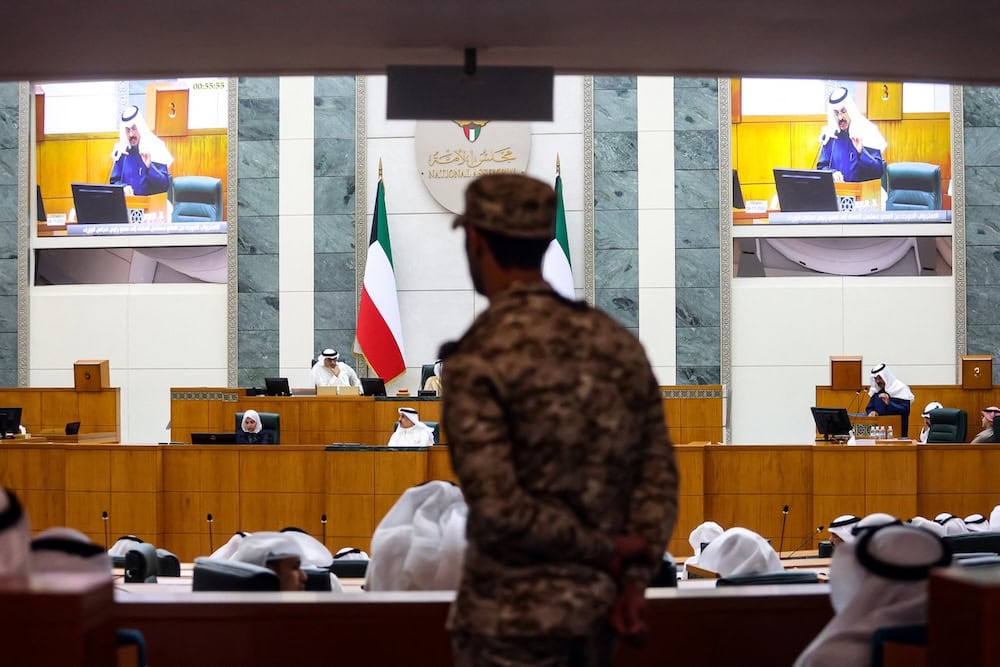The latest measures raise alarms about the erosion of civil liberties and the stifling of dissenting voices.
This statement was originally published on gc4hr.org on 25 September 2024.
The Ministry of Social Affairs and Labour has taken many legislative decisions and illegal measures that violate the Kuwaiti constitution to impose restrictions on the work of civil society organisations. Dissident voices are suppressed and the government restricts accountability for its policies and its failure to protect the civil and human rights of citizens, including the right to form and join associations.
Law (24) of 1962 and its amendments regulate the work of civil society organisations. It is an arbitrary law par excellence, which was specifically designed to dismantle independent civil society organisations that have positions different from those adopted by the government, or prevent the emergence of new CSOs.
Articles (2) and (3) of this law stipulate that civil society organisations must not practice any activity before registering with the Ministry of Social Affairs and Labour. The process is clearly politicised, as the ministry has over the years pursued a dual policy of welcoming and facilitating legal procedures and granting quick permits to pro-government associations on the one hand, and complicating the denial of procedures when it comes to independent associations that criticise the government.
Article (4) stipulates that the number of founders of any association must not be less than ten people, provided that they are all Kuwaiti nationals. Requiring ten founding members puts an unnecessary burden on a new association, and denying thousands of foreign workers and residents the right to establish their own associations violates their rights.
Article (6) is a vague article that stipulates that the association may not seek to achieve any illegal purpose and is prohibited from interfering in politics, which constitutes a restriction of citizens’ right to political participation through the associations they establish.
Article (9) gives absolute powers to the Minister of Social Affairs and Labour to reject the registration of the association, and gives the minister the right not to respond to the application for establishment within the period stipulated in this article, which is 90 days. The minister’s failure to respond is considered a rejection of the application. This article also stipulates that the minister’s decision is final and may not be appealed before the judiciary.
On 23 September 2024, prominent human rights defender Anwar Al-Rasheed posted on his account on X that former Minister of Social Affairs Hind Subaih did not agree to give him a permit to establish a civil society association until he was forced to change its name from “Liberals Society” to “Freedom Society.” However, this association was taken away from him according to the letter he attached to his post, issued on 28 June 2018, by the Ministry of Social Affairs and Labour, which stated that the Board of Directors of the Kuwaiti Freedom Association was dissolved, and that a temporary board of directors had been appointed by the authorities according to the same law No. (24) of 1962.
A study was published in December 2022 by a journal issued by the Scientific Publication Council at Kuwait University, entitled “Freedom of Charitable Work in the State of Kuwait”, which was conducted by two researchers, one of whom works at Kuwait University, while the other works at Princeton University in the United States. The most prominent results of the study were the following:
1. The regulatory environment for charitable work suffers from problems related to establishment and procedures;
2. Many obstacles exist regarding the practice of charitable work across borders.
In light of the study’s results, the researchers made a large number of recommendations, some of which were suggested by the research sample consisting of leaders of charitable associations, foundations, and volunteer teams. At the forefront of these recommendations is not to close charitable associations except by a court ruling, and to allow the freedom to establish charitable campaigns and projects without the need for government approvals.
In their concluding recommendations, the researchers stressed the need for “the Ministry of Social Affairs and Labour to facilitate the procedures and requirements related to establishing charitable associations and foundations, while achieving transparency, professionalism, and neutrality in applying regulations to the requirements for establishing applications without discrimination or bias towards some parties at the expense of others, and adhering to the time period specified in the law for approving the establishment of charitable associations and foundations and equally between different parties.”
The two researchers also recommended, “On the level of cross-border charitable work, work to provide an acceptable level of freedom for charitable associations and foundations to communicate and cooperate with their counterparts outside Kuwait,” as well as, “issuing a law on charitable work that guarantees the freedom for individuals and associations to practice charitable work.”
The Gulf Centre for Human Rights (GCHR) calls on the Kuwaiti government to lift the various restrictions, including complex legal procedures, on the freedom to form civil society organisations and charitable associations, and to respect the right of citizens, residents and foreign workers to establish and belong to their own associations or others.



